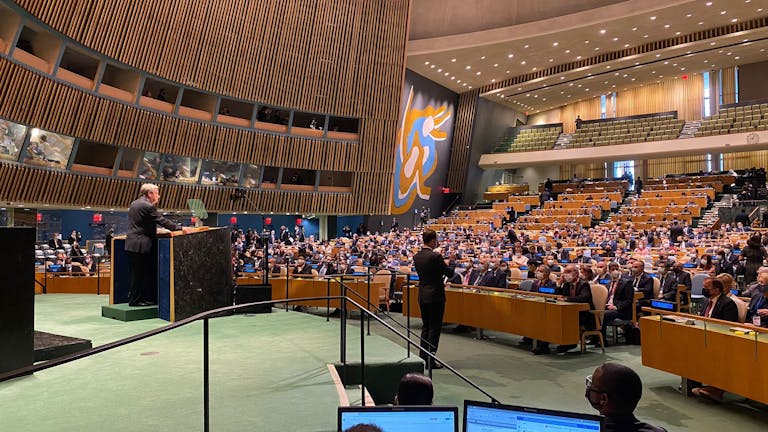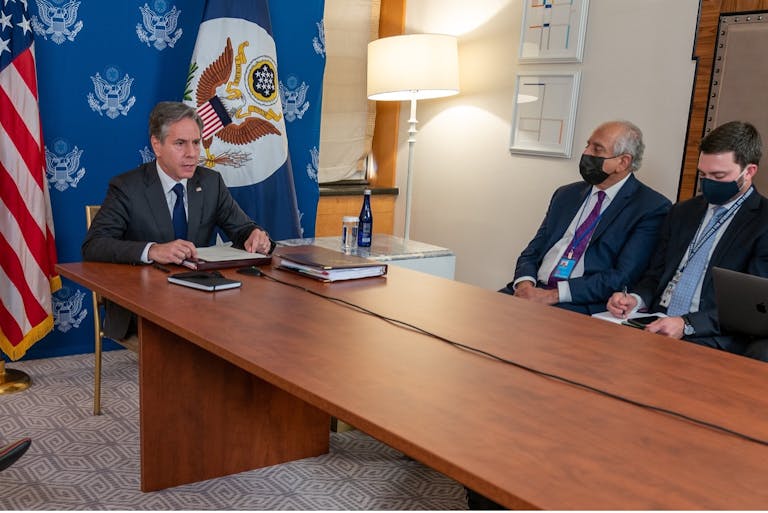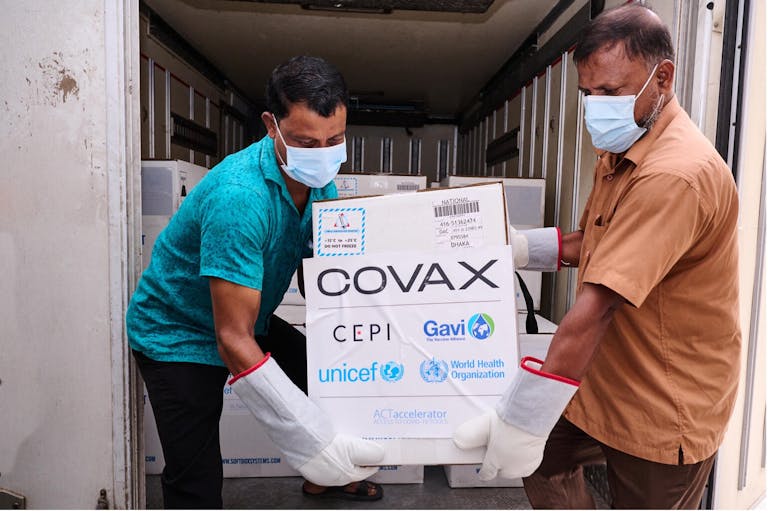Since the last in-person UN General Assembly convened in New York, more than 4.7 million people worldwide have died from COVID-19, and deadly new variants continue to spread, with wildly disparate vaccine coverage endangering millions. The pandemic has shuttered schools, ravaged economies, and stretched health systems past the breaking point. The protracted suffering it has caused was not inevitable; it has been exacerbated by choices made at the individual, community, country, and global levels that have complicated the race against the virus.
Nowhere is this more apparent than the injustice of global access to COVID-19 vaccines. High-income countries have administered 61 times the number of vaccinations as low-income countries, and fewer than 15% of the 1 billion doses pledged by high-income countries by September 2021 have materialized. At the opening of the High-level Week, United Nations Secretary-General António Guterres pulled no punches with his blunt criticism, which he called “a moral indictment of the state of our world. It is an obscenity. We passed the science test. But we are getting an F in ethics.” Throughout the week’s proceedings, heads of state and government from high- and low-income countries alike decried the world’s persistent vaccine inequity.
Amid this challenging backdrop, leaders — many with a hefty dose of frustration in their voice — demanded a more equitable pandemic response, arguing that increasing equitable vaccination coverage is the most powerful weapon to stop the spread of disease.

In her impassioned remarks to the General Assembly, Prime Minister Mia Mottley of Barbados asked, “How many more variants of COVID-19 must arrive? How many more before a worldwide action plan for vaccinations will be implemented? How many more deaths must it take before the 1.7 billion excess vaccines in the possession of the advanced countries of the world will be shared with those who [have] simply no access?”
Accountability to action was top of mind for many hoping to turn the tide on this pandemic, particularly among leaders who hold the power to make such change.
Global COVID-19 Summit
One promising way to try to incentivize the global community to rapidly accelerate action was the White House’s high-level gathering of more than 100 world leaders and 100 non-state actors and civil society representatives on the margins of the UN General Assembly. The Global COVID Summit signaled greater U.S. leadership on the pandemic response to hold the global community to mutual account through common targets and tracking progress.
“The only way to get this done is for everyone, everywhere to step up,” President Joe Biden told the virtual crowd, pledging that the U.S. would donate an additional 500 million vaccine doses to low- and middle-income countries by this time next year, bringing total U.S. donations to 1.1 billion. Mr. Biden urged other countries to follow suit and honor their own ambitious pledges.

Promisingly, the summit also launched a new U.S.-European Union partnership to expand global vaccinations and shore up global supply chains, support COVAX as the main distributor for sharing World Health Organization-approved vaccines, fight disinformation, and support greater regional vaccine manufacturing capacity in Africa and low-income countries. A pledge by Indian Prime Minister Narendra Modi to resume Indian vaccine exports will help pave the way toward meeting the 70% goal of vaccine coverage worldwide by next year’s General Assembly.
The U.S. also used the summit as a moment to build support for a new financial intermediary fund to catalyze up to $10 billion per year of new pandemic preparedness financing, consistent with the recommendations of the G20’s High Level Independent Panel on Financing the Global Commons for Pandemic Preparedness and Response. Echoed in Mr. Biden’s speech to the General Assembly in New York, the U.S., South Africa, and other countries also threw support behind a global health threats council to bolster political leadership on global health security, as recommended by the Independent Panel for Pandemic Preparedness and Response.
Notably, most governmental leaders who participated explicitly endorsed the 70% vaccine coverage goal, alongside other targets to accelerate access to personal protective equipment for health workers, oxygen for patients in need, and other lifesaving tools. But an endorsement of targets alone is clearly inadequate. The coming months will require a transparent, robust road map, and strong accountability to ensure that the targets are delivered. It’s far past the time to kick the can down the road.
Beyond COVID-19
Though the acute consequences of COVID-19 dominated global health conversations at UNGA, numerous Member States offered powerful reminders of additional damaging health implications of the pandemic.

In 2020, for instance, 57 lifesaving vaccine campaigns in 46 countries were interrupted and have not been restored, and many countries are combating measles outbreaks. The 300-plus stakeholders who participated in a high-level side event on Immunization Agenda 2030 articulated clear links between ending COVID-19 and reinvesting in routine immunizations. Progress on this agenda will not only save lives but also help build resilient health systems that can respond to future health emergencies.
Global cooperation has never been more tested. As we have painfully seen throughout this pandemic, no country can solve complicated problems on its own. The world deserves answers. Every nation must have a seat at the table to deliver on the goal of building back better.





